‘It reflected a time when we all behaved very well’: how Dad’s Army made Britain better
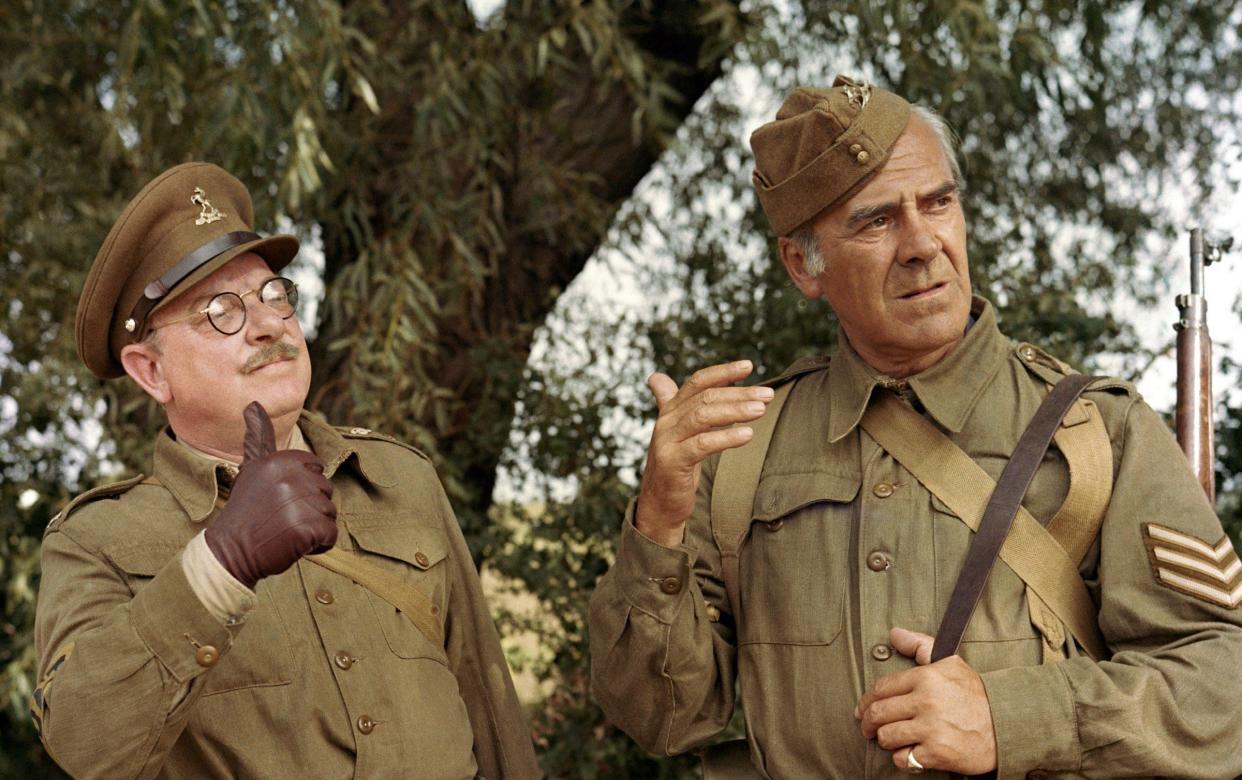
It was a year of insurrection. In the streets of Paris and on the campuses of America, students were rioting. In Czechoslovakia the armies of the Warsaw Pact quashed the Prague Spring. Robert Kennedy and Martin Luther King were assassinated. North Vietnam launched the Tet Offensive. In 1968, amid worldwide chaos and disquiet, the BBC unveiled a quaintly nostalgic sitcom taking the mickey out of the Second World War.
Dad’s Army is, more or less unarguably, the greatest British situation comedy of them all. Steptoe and Son has its claimants. So too Fawlty Towers, soon to be exhumed in the West End. Others merit consideration. But no single sitcom has left quite such a long and glorious vapour trail.
Between 1968 and 1977 there were 80 episodes. There was also a feature film in 1971 and a West End stage play-cum-revue. Recently some lost episodes have been revived in the form of black-and-white cartoons. Countless repeats have recruited younger fans. A slightly misbegotten big-screen version in 2016 simply confirmed that the original is inimitable.
In the beginning was the partnership of David Croft and Jimmy Perry, who both had first-hand experience of the war. Croft was an air raid warden who in 1942 joined the Royal Artillery and was soon deployed to North Africa. Perry, a teenage veteran of what became the Home Guard, joined the artillery a year after Perry and fetched up in Burma. There he was active in concert parties, mainly taking the camp Carmen Miranda-esque roles – those experiences would later inspire It Ain’t Half Hot Mum.
So when Dad’s Army came to be shot, they knew the terrain. “We were very lucky with authenticity because we were there,” recalled Croft, speaking in the episode of Britain’s Best Sitcom devoted to Dad’s Army. “There weren’t any technical advisers floating about. We didn’t have to have that. We knew the background very well.”
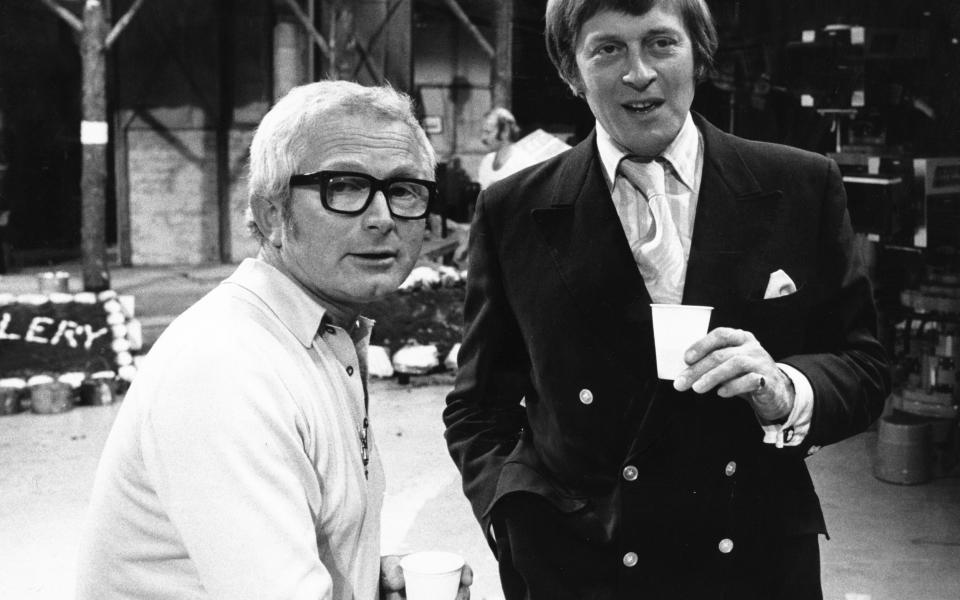
In 1967 both were in a hole. Croft was just about hanging on as a comedy producer at the BBC; he was blamed for the disaster of Benny Hill’s departure for ITV, having fallen out with the star while producing his show. Then a first draft of a half-hour comedy was passed on to him by his wife Ann Callender, a theatrical agent who represented Perry. It was called The Fighting Tigers and it lovingly caricatured the antics of the men, too old to join up, who were England’s last line of defence against invasion.
Perry was a jobbing actor in the doldrums. A creature of the theatre – for ten years he had been actor-manager at Watford Palace – he couldn’t get arrested in the new world of television. So he decided to write a script with a tailor-made role for himself. The idea came to him when watching the changing of the guard at Buckingham Palace; it riffed on his experiences as a 17-year-old in the 10th Hertfordshire Battalion of the Local Defence Volunteers.
Croft liked the script and took it to the BBC. Six episodes were commissioned by the head of comedy Michael Mills under the catchier title of Dad’s Army. Croft and Perry then wrote it together (though eventually they wrote separately, 40 episodes each).
When it came to casting, leading actors turned down the part of Captain Mainwaring until Croft suggested Arthur Lowe, best known for Coronation Street. Lowe was initially wary of doing a sitcom, while the higher-ups weren’t keen on an actor associated with the rival broadcaster, but the writer-producers had their way.
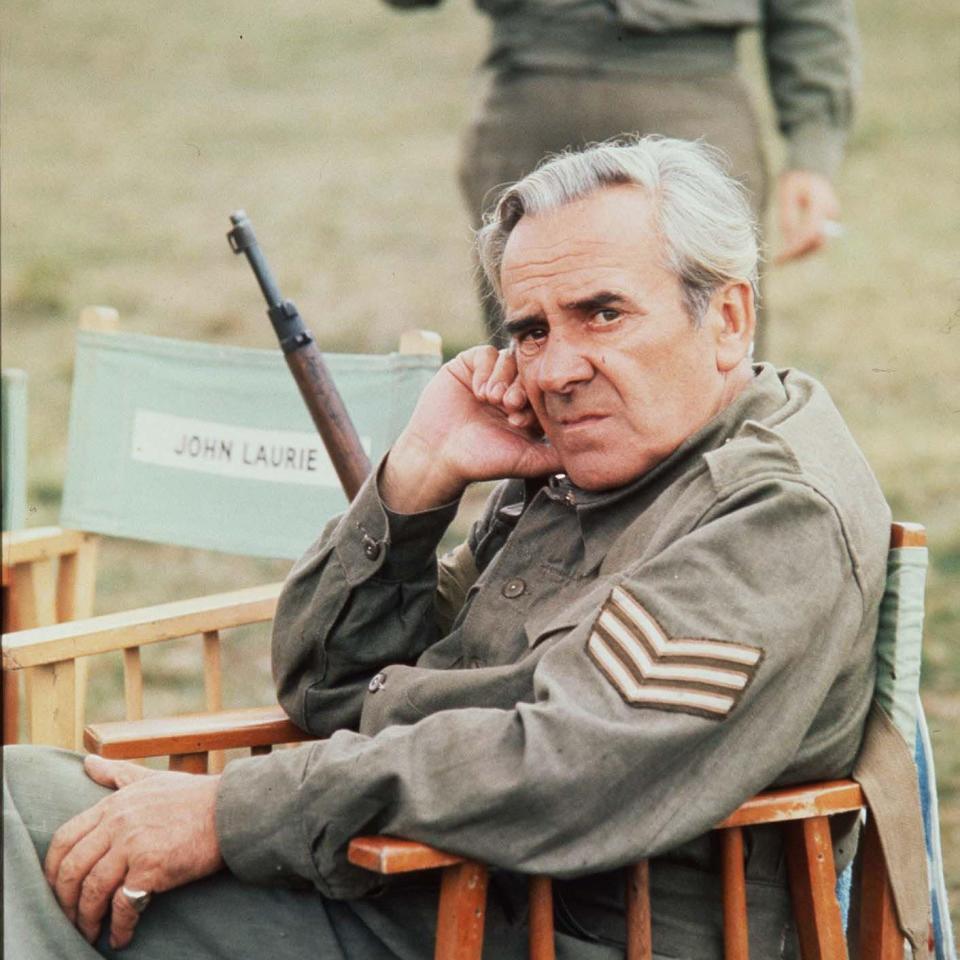
It was a potentially disastrous choice because Lowe found it difficult to retain Mainwaring’s dialogue. This was so even as late as the sixth series. In the lead-up to the show’s most indelible punchline – “Don’t tell him, Pike!” – Lowe makes an awful Horlicks of one line and a delicious cutaway to John Le Mesurier discreetly side-eyeing as Sergeant Wilson says everything about their relationship.
It was Mills’s idea to have Wilson tower over Mainwaring. The casting of Le Mesurier as Mainwaring’s social superior but military underling was a stroke of genius. There was a languid, inscrutable otherness to him that helped create the impression of Wilson floating in his own private space.
Meanwhile Perry’s dream of starring in his own creation bit the dust. He was too old to play Private Pike, who was inspired by his own memories of being molly-coddled by his mother while defending the realm. The role he had his eye on was the black-marketeering spiv Private Walker.
“If you’re a writer and you’ve written yourself a funny part,” reasoned Croft, “all the other actors are going to think he’s written the best lines for him. So that is not a desirable thing.” Instead the part went to James Beck, who had been among Perry’s discoveries at Watford Palace.
The ensemble, far larger than for any previous sitcom, included two veterans of the Somme. The best known was John Laurie as Private Frazer, who had a key role in The Life and Death of Colonel Blimp and had starred in Hamlet at the Old Vic. Arnold Ridley, as Private Godfrey, was the author of many stage plays – notably the influential and much-produced The Ghost Train. In 1916 he had been bayoneted twice in hand-to-hand combat, his left arm operated on 17 times by army doctors.
But it was the proximity of the more recent war that was the show’s potential enemy. The Second World War was only as old then as the invasion of Iraq is to us now. “You couldn’t choose a bigger situation unless you did the history of the world or the story of the bible,” said Clive Dunn on Britain’s Best Sitcom – he was not yet 50 when cast as Corporal Jones but his CV consisted of older roles. “I had a good idea how to play that part. I was an old soldier, I’d been in the army for seven years, I’d been a prisoner of war for four years. Old Corporal Jones always hated Hitler and did his best to be unpleasant about him so from that point of view it was a sort of revenge for me.”
BBC1 controller and ex-paratrooper Paul Fox feared the wrath of the nation. He worried that they would think the show was disrespectful of the war effort. One of the problems was the title sequence, which originally included footage of both refugees and the Wehrmacht. Laurie found it distasteful. The bosses didn’t like this raw reminder of national trauma either. So the iconic cartoon sequence was commissioned instead, with Nazi arrows shoving Union Jacks back across the English Channel. Meanwhile, the plucky spirit of Dunkirk was invoked by the lyrics of Perry’s signature tune, “Who Do You Think You Are Kidding, Mr Hitler?”, sung by music-hall star Bud Flanagan.
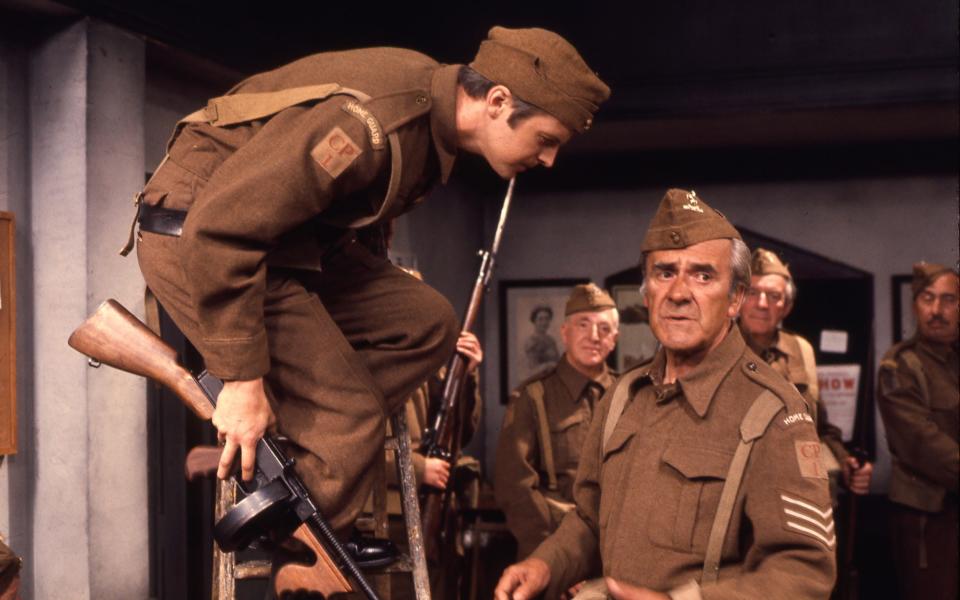
When the show was recorded in front of a live audience, it went well. But just to be sure, the BBC arranged a new-fangled test screening of the first episode to anticipate audience reaction. Some expressed bewilderment. The crafty Croft didn’t panic. He stuffed the report in a drawer and, when asked about the results, claimed not to have seen them.
Paul Fox’s other insurance policy was to insist on an opening scene set in the present day in which the characters respectfully recollect the war effort. The experiment was not repeated. It was particularly unfortunate that it showed Beck as an old man when in reality he died, aged 44, of alcohol-related pancreatitis while working on the sixth series.
None of the cast, especially the ones in the 70s, imagined it would last. “We didn’t think it would become so successful,” Le Mesurier said on Desert Island Discs in 1973. “We thought it would appear to people of my sort of age group, but children seem to dig it.”
Success was measured in viewing figures. At its loftiest peak, Dad’s Army lured 18.5 million viewers to the sofa, or roughly a third of the UK population. That eye-watering statistic reflects the show’s popularity but also, with only three channels to choose from, a less competitive era in broadcasting. Those viewers were watching a weekly snapshot of England’s calcified class structure just as the 1960s were loosening things up. Its beloved cast of characters, with their pitch-perfect catchphrases, rapidly entered the national bloodstream.
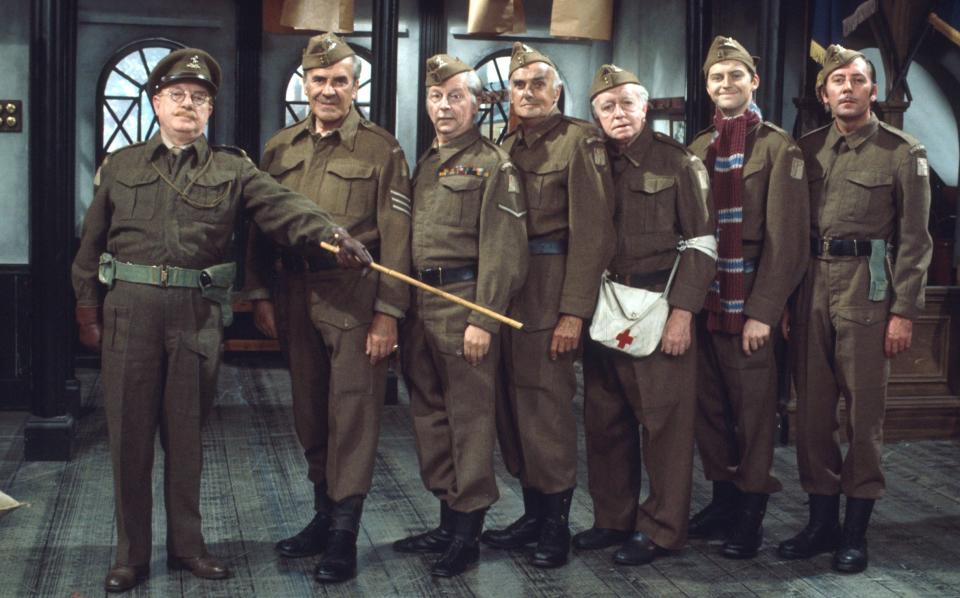
It was only the actors’ age that brought the show to a close. “We had to come to an end,” recalled Perry, “because David said, ‘You know Jimmy, they’re getting on – I don’t think they can do much more.’ I said, ‘Well let’s do one last series.’”
Why did it work so well for so long? According to Croft, “It reflected a time when we all behaved very well”. As a gang show it was one of the inspirations for Victoria Wood’s dinnerladies. Not long after finishing her own sitcom after two series, she fronted a documentary in tribute to Dad’s Army. In a concluding piece to camera, she praised its vanishing virtues: “It’s celebratory and it’s positive and it’s innocent,” she argued, “full of wit, pathos, character, slapstick, farce, overplaying, underplaying.” And because it was set in the past, she added, it could never age.
Despite the death of Ian Lavender, the very last surviving member of its cast, it looks as if it never will. If there’ll always be an England, there’ll never be a more popular comic portrait of Englishness. This was our finest half-hour.


